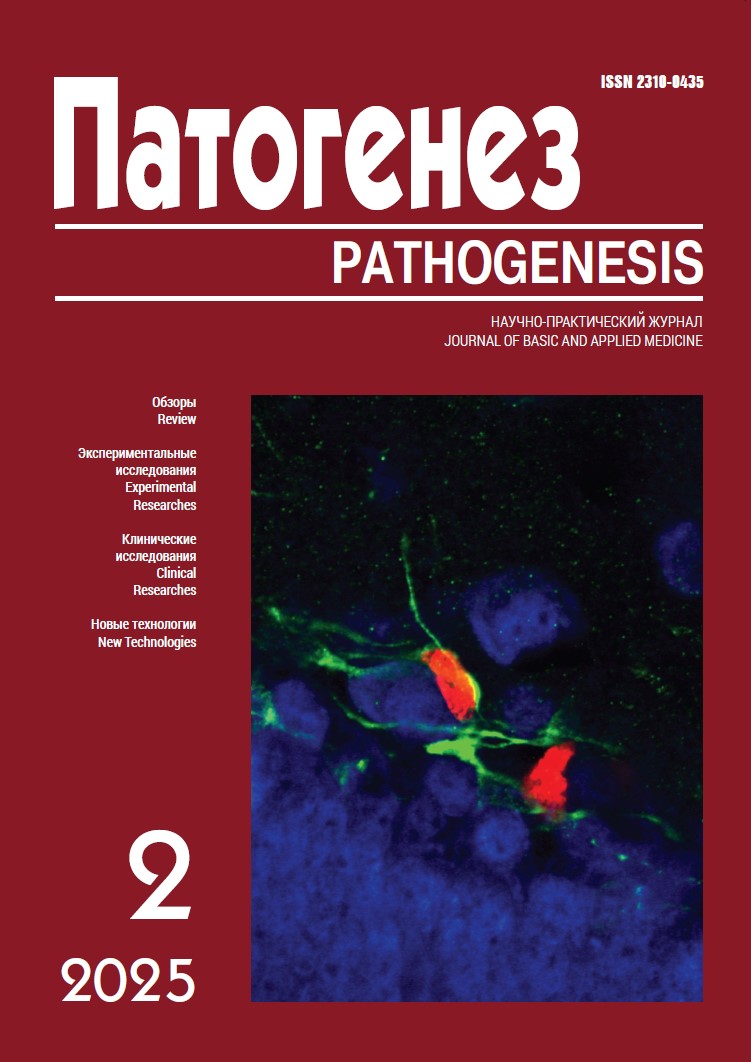Modern concepts of the pathogenesis of sporadic forms of Parkinson's disease
Abstract
Parkinson's disease (PD) is a multifactorial neurodegenerative disorder characterized by progressive loss of dopaminergic neurons in the substantia nigra. Among neurodegenerative diseases, PD ranks second after Alzheimer's disease and the total number of patients diagnosed with PD worldwide is projected to increase to 8.7 million by 2030. Most PD cases are sporadic and only 10–15% of cases are familial forms. From the point of view of pathophysiology, sporadic forms of PD belong to the group of multifactorial diseases. That is, a disease in which heredity can be an etiologic or pathogenetic factor, but the penetrance of mutant genes requires appropriate environmental factors. We searched for full-text publications in Russian and English in the eLIBRARY.RU, PubMed, Web of Science, Springer databases using keywords and phrases for the last 20 years. The review examines in detail mutations in those genes that can increase or decrease the risk of developing sporadic forms of PD, as well as the influence of environmental factors on the development of the disease. The main pathogenetic factors of the influence of genetic and environmental factors on the development of PD are presented.




